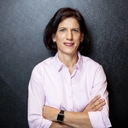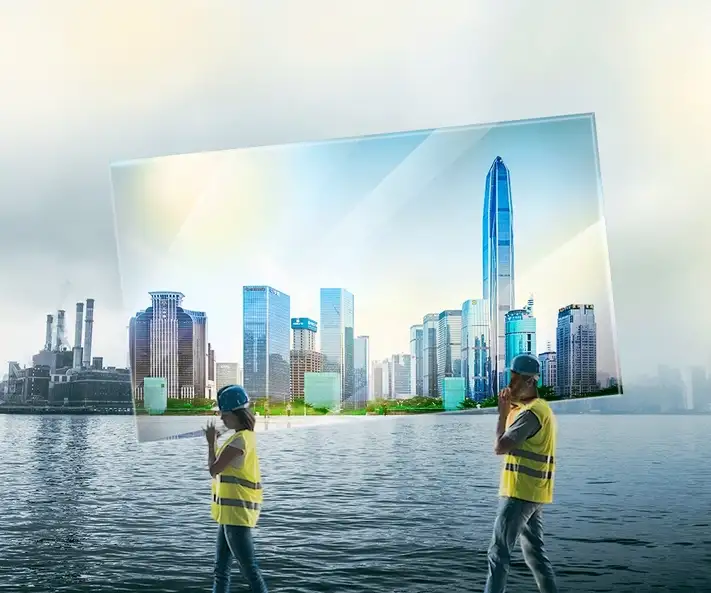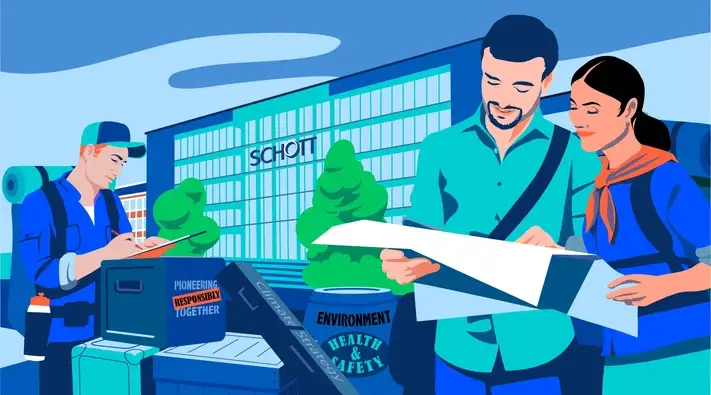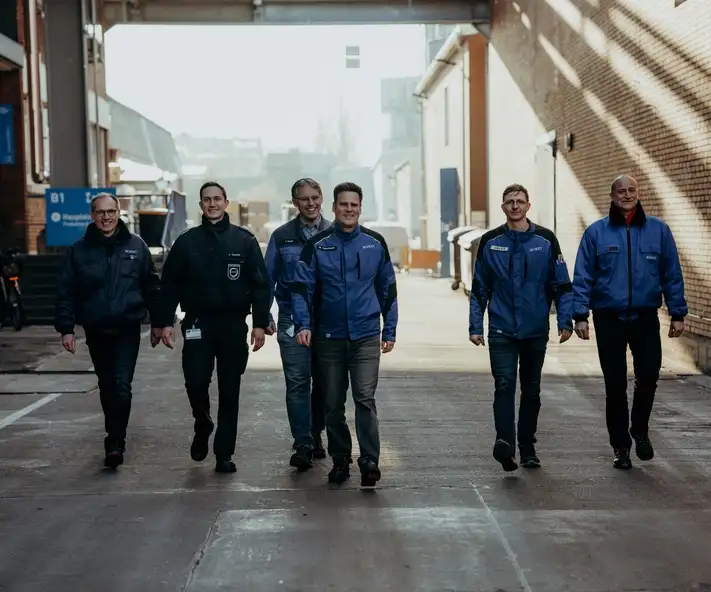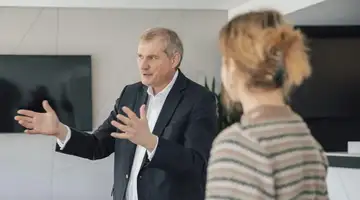
"Working together for more climate protection"
Climate protection is a topic that concerns everyone. But the young generation in particular is increasingly calling for business and politics to act faster to stop climate change. Romy Hahn (20) and Emma Derix (20) are getting involved and taking to the streets for more climate protection – for example with Fridays for Future. They discuss climate protection, political demands and the challenges of reducing CO₂ emissions in energy- intensive glass production with CEO Dr. Frank Heinricht.
Only when individuals, companies, and governments work together, can we make progress on climate protection initatives.
- Two young women who are committed to climate protection discussed climate justice and social issues with SCHOTT CEO Dr. Frank Heinricht.
- SCHOTT wants to significantly reduce CO2 emissions in glass production and can already report initial progress.
- Despite concerns about being heard, the young generation is confident that joint efforts can lead to significant changes.
Romy Hahn: Dr. Heinricht, you are CEO of a company that generates a lot of carbon through its glass production. In 2019, it was around one million tons. How do you plan to reduce these emissions?
Dr. Frank Heinricht: That's a big number when you hear it for the first time, isn't it? I was surprised, too. But we analyzed everything, developed a plan and set ourselves the goal of decarbonizing our production. That's ambitious and associated with many challenges, and it makes us a pioneer in the specialty glass industry.
We've made good progress by replacing conventional electricity with green power — that's been our biggest achievement so far. We initially relied on green power certificates, and in the future, we want to use more and more power purchase agreements: These are contracts with energy producers who generate electricity from photovoltaic or wind power plants, and therefore help us gain even more ground in our energy transition. By making the switch, we were able to reduce emissions by 60%, but we still have around 350,000 tons to go.
Emma Derix: How long have you been using green electricity?
Dr. Heinricht: In 2020, we took the first step and made the electricity consumption of our melting sites climate neutral by means of certificates of origin. Since 2021, we have actually been exclusively using green electricity worldwide.
Hahn: But that can't be all — what else are you doing to reducecarbon?
Dr. Heinricht: Our most important and most difficult goal is to convert the technology used in the furnaces we use to melt our glass. At the moment, the furnaces are mainly powered by natural gas. We want to change that, which is why we are currently researching two new technologies to convert the way we heat our melting units. One is green hydrogen, and the other is electrification with green electricity.
Derix: What is more realistic for production at the moment — green electricity or hydrogen?
Dr. Heinricht: At the moment, we favor the electric route. There is a lot of discussion about climate neutral green hydrogen at the moment, but my guess is that it will take longer before it is economically viable — since green electricity is also needed to produce green hydrogen. We also need an appropriate hydrogen infrastructure in Europe. There are still a lot of open questions and challenges at the moment.
To be "H2 ready" in our production, we have launched various research projects. We have successfully tested hydrogen use in the laboratory and blended up to 35% by volume on an industrial scale, and we are planning further tests. If at some point green hydrogen becomes available in sufficient quantities and at low cost, we will potentially be able to switch over quickly.
Hahn: Is hydrogen use realistic in the long term? Or is green electricity the better option after all?
Dr. Heinricht: We are pursuing both approaches. But at the moment, my impression is we're more likely to run electric vats because that seems more realistic. We have started major research projects in this area, and we will complete the first by the end of 2023. After that, we will make a decision on a first electric tank that reduces CO2 emissions in the tank by 80%.
The use of green electricity is also more energy-efficient than the use of green hydrogen, which I see as more of a supplement at the moment. However, there is a lot going on with hydrogen, so it is difficult to predict — there could also be a sudden breakthrough. Either way, a complete rollout of the technology will take time.
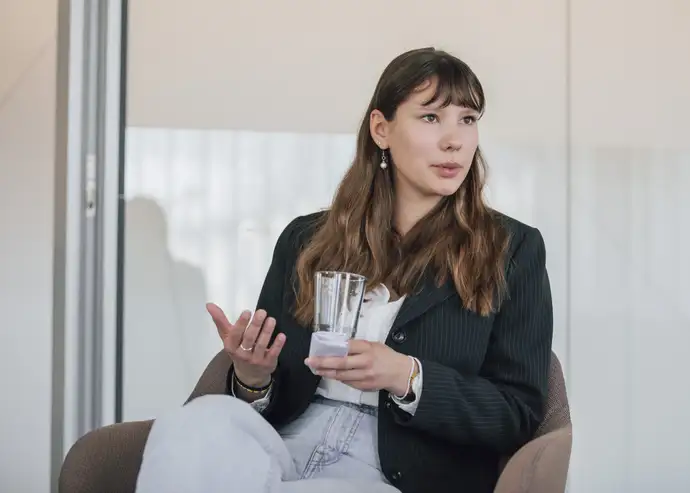
Emma Derix is 20 years old and an economics student. She is also involved in environmental protection with Fridays for Future, among others.
Derix: Okay, but is that enough to produce more climate friendly?
Dr. Heinricht: The technology will be developed and therefore available. But due to our long furnace lifetimes, among other things, we will not manage to convert the entire production and thus have to compensate for all remaining emissions.
Derix: Compensation is very controversial...
Dr. Heinricht: Yes, and to some extent rightly so. For us, offsetting is clearly only the third-best solution. We are looking for reliable and credible compensation projects. However, these are not so easy to find. We clearly want to reduce our emissions primarily through levers such as technological change, energy efficiency and green energies. But this will take time. Until then, we believe it is better to contribute to climate protection in other countries and promote projects than to do nothing at all.
Hahn: You support the afforestation and reforestation of forests. Do you see what these projects achieve? Trees need time to grow and the carbon compensation grows along with them, so to speak. That is always the criticism here, what do you say to that?
Dr. Heinricht: We buy certificates from forest projects that meet our high standards. My vision is for SCHOTT to establish its own forest project, for example, in a country with favorable climate conditions for rapid growth. That would be an ideal compensation project — and we would have an exact overview of what is happening and what we are contributing.
Hahn: You said hydrogen and green power would have to be available in sufficient quantities for you to convert the melt. What are your requests to policymakers?
Dr. Heinricht: The availability of these energy sources is a major challenge. We think and plan in roadmaps, and we would like to see the same from policymakers. There are currently discussions about phasing out coal and gas, but thinking about shutting something down isn’t enough, it’s important to make a plan for what comes next, what we want to turn on and when.
No one would blame the state for admitting they are not going to make the 2030 deadline, if there is a good plan. Such a plan, or roadmap, would show how we gradually build up renewables and get hydrogen from somewhere else, how we build infrastructure, electricity, and gas grids for hydrogen. Just saying “we want renewable energies” without a concrete plan is too little.
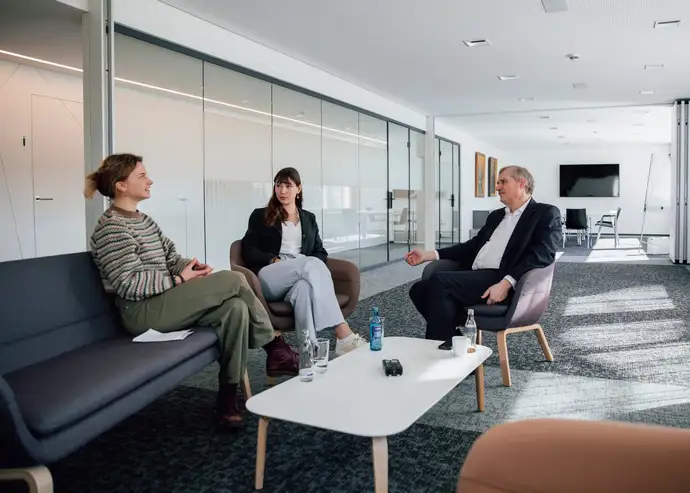
A conversation about the future: Romy Hahn and Emma Derix speak with SCHOTT CEO Dr. Frank Heinricht.
Derix: We are committed, have taken to the streets for our concerns, but often feel that we are not being heard. As a result, very little happens. That's why we are increasingly counting on companies to become aware of their responsibility, to exert their influence more effectively, and to generate even more pressure vis-à-vis politicians.
Hahn: Yes, exactly. What is SCHOTT doing to reach out to politicians?
Dr. Heinricht: We exchange ideas on various occasions and share our perspectives. However, we sometimes have the impression that too little is getting done. Companies ask themselves: How reliable is Germany as an industrialized country? Can we rely on green energy supplies? If there isn’t a concrete answer to those questions, companies migrate to the USA or to Asia. The younger generation should also keep this in mind, despite all the justified criticism.
And as I mentioned earlier, I would like to see more reaction, transparency, and openness in the political realm. Politicians tend to think in very short time frames and avoid calling out problems because unpopular statements always cost votes. In their defense, however, we are in a state of extreme change against the backdrop of the war in Ukraine, so it is difficult to set a direction that will receive broad approval.
Hahn: We hope that our young generation, together with many other people, including more and more corporations and countries, will pull together in the face of politics. What are you doing at the global level?
Dr. Heinricht: We are present at 32 locations, including the USA, South America, China, India, Turkey, and Japan. For us as an international company, climate policy is not a purely German issue, but one that we want to implement globally, from the use of green electricity to the future electric heating of melting furnaces or hydrogen operation.
But I also think it's important that we take care to involve and consider the unique perspectives of different populations within those countries. For instance, people are not always primarily concerned with CO2 reduction, perhaps they’re more concerned about gaining a higher income, for instance. Many people face other challenges in their everyday lives.
Derix: Sure, social justice and climate justice should go together. However, when it comes to making changes in their personal lives like driving less, many people don’t want to go along, perhaps out of fear of restrictions or increased costs. Communicating goals is not enough. We also need to establish consequences.
Dr. Heinricht: Absolutely. Some act out of conviction, others only when they no longer want to bear the consequences, such as higher taxes or CO2 levies for things that are harmful to the climate. In my view, such legislative measures and their communication are part of desirable step-by-step changes – much better than ad-hoc, abrupt measures saying, “starting tomorrow, this and that will be banned.”
Derix: You say on your website that you want to become more efficient in your plants at the same time. How did you envisage this in concrete terms?
Dr. Heinricht: The primary metric is energy consumption. If we consume less, that's more efficient. In Mainz, for example, we try to use waste heat from melting units in the summer for refrigeration in production, and in the winter, we use it for heating the buildings. This now also makes economic sense, unlike in the past. The economic aspect is also important, because we first have to earn the money for the ecological transformation of our melting units.

Romy Hahn is 20 years old and involved in climate protection with Fridays for Future, among others. She is currently preparing to study psychology.
Hahn: Good keyword. How are the climate targets for 2030 compatible with SCHOTT's growth targets?
Dr. Heinricht: The effort for the climate targets is priced into our roadmap. This plan provides information about how we can grow in a carbon neutral manner. We collect detailed data on this internally every year.
Derix: If you grow and produce more, you also generate additional emissions. Has this increase been taken into account in your planning up to 2030?
Dr. Heinricht: Yes, we have included that in our calculations.If, for example, we operate a melting tank heated with green electricity, this does not contribute to the carbon footprint and is climate neutral. The transition is taking place gradually. Our tanks are in operation for four to ten years before they are replaced. Melting tank repairs are carried out every year, and we will gradually convert them to the new system. In this way, we are gradually reducing our emissions and can continue to grow.
Derix: Green electricity is becoming more and more expensive. Can SCHOTT use its approach to stimulate demand and thus make green electricity more affordable?
Dr. Heinricht: In principle, yes, but in practice it’s not so easy. For example, the price of green electricity has doubled because so many people are jumping on the bandwagon now. We hope that this will encourage more people to build wind turbines and photovoltaic systems. However, politics must also do their part by, for example, issuing permits more quickly. I've been involved in a wind farm myself for 20 years and know how incredibly slow it can be.
Hahn: When Russia stopped supplying gas after the attack on Ukraine, Germany reacted quite quickly with measures and saved gas. Do you think that a further increase in climate change could also accelerate the rethinking process?
Dr. Heinricht: Yes. In crises, people and politicians react more quickly. Unfortunately, often only then — but then very dynamically.
Derix: One sometimes wonders what's the point if one country strives for climate neutrality and others don't?
Dr. Heinricht: True. But somebody has to start. For German industry, this trend is a great opportunity to be at the forefront of climate technologies. We just need to pick up the pace to set an example and create export opportunities.
But now I also have a few questions – you said you feel you're not being heard, but my feeling is that the climate protests are becoming more and more visible. How do you feel about that?
Hahn: We have noticed that the issue is more present. But still, too little is being done. Some people are trying to use the issue to enhance their image. There is often a lot of greenwashing involved. But our planet doesn't care if it says, "I'm 100% climate friendly, I am 100% climate neutral.” Others are only interested in votes. We don't feel like we're being taken seriously. You don't get the impression that many people want to change anything.
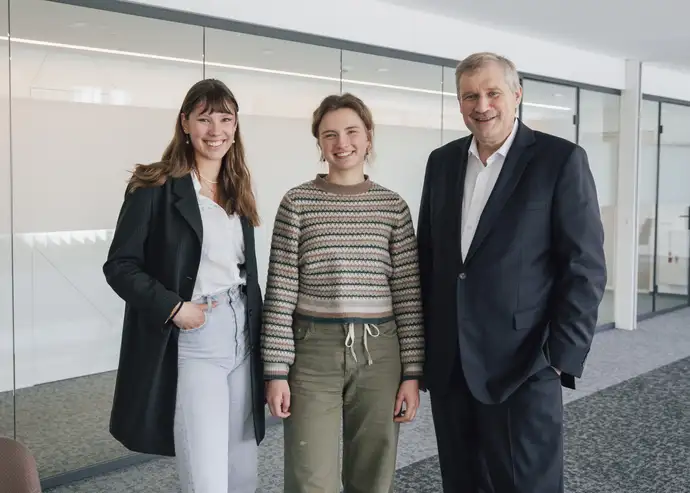
Together for the climate! From left to right: Emma Derix, Romy Hahn, SCHOTT CEO Dr. Frank Heinricht.
Dr. Heinricht: Do you exchange ideas in your community — for example, what is greenwashing and what is not? What you buy and what you don't buy?
Derix: We inform ourselves on the Internet, via videos or documentaries, about how to recognize greenwashing. Whether there are fuzzy statements on a package or whether companies really describe their steps. Whether there is only talk of a study or whether real empirical evidence is cited. The fundamental problem is that terms such as sustainability are not regulated, so their use does not entail any consequences.Anyone can depict the cow on the milk carton in a meadow, even if the cow has never seen the meadow.
Dr. Heinricht: But that doesn't apply to the entire younger generation, does it? It's also divided, let's say, into climate-conscious young people and others who perhaps like to fly to Mallorca to party and enjoy life ...
Hahn: Some people may lack the education to recognize the connections. Others have enough money, they don't care if a hurricane is raging outside their house, they can just go into their bunker. Unfortunately, people with the highest incomes are responsible for the highest percentage of CO2 emissions. And poorer people, who produce less CO2, are hit the hardest, especially when prices rise.
Derix: Certainly, the family environment also plays a role. If you have a family and your grandparents and parents were already committed to the environment and climate, you grow up with a corresponding self-image. This is not the case for everyone, and it divides the younger generation. That's why there is often no consensus in some discussions. On the other hand, we question our own activities, such as skiing, which is not good for the climate. Is it then morally acceptable for me to point the finger at others?
In the meantime, however, it has become clear to me that even if I always ride my bike, I make very little change by doing so. The primary thing is to reach out to politicians. Because they are the only ones who can create a big change and address different opinions through uniform regulations.
Dr. Heinricht: I agree with you about politics in every case — but I believe that everyone can and must do something to ensure that we make progress. It can only be done together.
In any case, thank you very much for the good discussion.
Emma Derix and Romy Hahn: Thank you very much as well!
